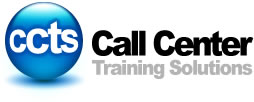Sometimes companies want their people to sell, but either don’t provide telephone associates with the right tools and compensation, or they try not to make a big deal of the sales component. Introducing sales expectations will be a big deal. Whether or not to introduce sales is a question that every company will attempt to answer. And sales is not for everybody. But if we are going to do it, it is imperative that we do it right.
Everything changes when introducing sales into a call center. It is not the same as upgrading the telephone system. Since telephone associates in these centers were not originally hired to sell, skills must change. Supervisors must modify the way they coach, to incorporate conversations about how well telephone associates are selling. Senior management must make changes as well to make sales communication an everyday part of the job. Training is necessary, too. Here are a few tests to see if your center is maximizing its sales potential.
1) Compensation:
Telephone sales people must be compensated appropriately for their difficult new role. If your telephone sales people are not receiving individual compensation for sales, they will feel cheated. Center-wide compensation or team compensation won’t maximize the sales effort. Telephone sales people won’t care as much about their efforts in relation to the rest of the team. Your “top guns” will quickly become frustrated that their sales are helping the lower contributors barely break even and keep their jobs. Compensate individually and even richly to generate the best results. Additionally, we recommend reducing salary and increasing compensation. But the compensation must include the opportunity to far exceed the original salary. If Johnny was making $36,500.00, but his salary was reduced to $22,500.00, it will feel like an insult if his excellent sales efforts only bring his total earnings back to around $36,500.00. Johnny should have the opportunity to earn $40,000.00 or even $50,000.00. Remember, if Johnny is earning more, so is the organization.
If you already have sales quotas, you know how important they are to your center’s performance. Sales quotas cut through the often very gray area of “feelings, efforts and intentions.” Often, we really like some of our sales people and they seem to be making the effort when we are on the floor listening to them. When they regularly miss their sales quotas, however, you know that they are not making that effort all the time. Some may grumble, but sales quotas are usually considered a baseline, a bare minimum. Imagine a group of students taking an algebra test in school. The teacher tells them to do “as well as they can.” That same group of students would have averaged a much higher score if the teacher said, “To be successful you must score at least 75%.” Sales quotas produce the same results.
3) Accountability:
This is the other component in a proper sales quota. There is no use telling your center that they must achieve at least 30 sales per month if there is no consequence for not hitting 30 sales. Although many centers establish a one-three month grace period when they first introduce a sales quota, consequences must eventually become part of the process. If not, telephone associates will continue to perform as they have in the past. Remember, the goal is not to harass your people. It is to bring out their best. Although an occasional employee performs better and develops more quickly when left to function at his/her own desired effort level, most employees prefer guide lines, rules and targeted expectations. Employee opinion polls may not agree with the last sentence, but research on employee performance agrees completely.
4) Daily Results:
It sounds too simple to be important, but producing daily results for sales people and supervisors to see will contribute to a positive selling environment. In field sales, or face-to-face selling, weekly or even monthly results are usually fine. It all depends on the average number of sales in a given sales period. In most call center environments sales people will make sales daily, so they should see their results daily. Supervisors can more quickly praise those that produce well and help those that struggle with sales.
5) Stack Rankings On Walls:
Sales results for each team should be posted around the walls for all to see. Nothing motivates a lower performer more than seeing his/her achievements at the bottom of all their peers. This may sound cruel, but it is part of the selling environment. It is also an excellent test to see whether your center is doing all it can to promote sales. Initially you will hear some pushback like, “Hey, this is like ‘big brother,’ watching us like this.” But that type of response rarely comes from your better producers. Since you want more of these better producers, motivate them with compensation and publicized results.
6) Sales Coaching:
There is no substitute for this component. When a center shifts from service-only to sales and service, the supervisors and floor managers often continue to work the floor as they had in the past. They spend the majority of their floor-time putting out fires, answering questions, taking escalations and approving credits. In a true sales center these same managers will partition time to conduct on-the-floor observations and sales coaching conversations. Did she try to close on that last call? Did he probe for needs? Are my people making at least one sales offer on every call? In a sales environment these types of coaching conversations must happen immediately to have a positive effect on performance. Some centers instruct their supervisors to pull telephone employees offline once each week (or even every other week) to listen to recorded calls and conduct private sales coaching. This is somewhat helpful, but it is not enough. For better sales performance (and for more satisfied telephone associates) keep your supervisors on the floor, driving sales through better sales coaching.
There are many other great ways to transform your call center into a high-performing sales/profit center. We will share additional ideas in the coming moths. We also welcome your ideas. In the end there is nothing more satisfying than watching a group of people mature into a cohesive sales team, earning more for themselves and your organization.

